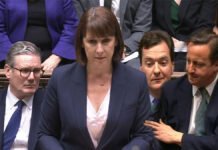Austerity kills: Commission demanded cuts to public healthcare spending 63 times from 2011-2018
Irish GUE MEP Mick Wallace said health services had been “hollowed out” across Europe at a time when their services were “needed more than ever.”
Mick Wallace MEP a member of the European united Left didn’t hold back in is condemnation of the EU.
Mick Wallace gave a few home truths to an organisation that Tony Benn once declared, was the “only constitution in the world committed to capitalism.” They place serious restrictions on public ownership, committing member states to open up public services to competition.
Wallace in a statement said “This virus is a demonstration of why neoliberalism is a broken system. China has achieved miraculous results thus far in its battle and they were only possible because of the size and power of their state institutions. They bought the rest of the world extra time, which we went on to squander. Decades of neoliberalism and privatisation have undermined the public health systems of every European country, and this is evidenced by the pressures on the systems in the affected countries now.”
There is talk of saving younger patients due to the strain on resources. Commissioner, you said we need solidarity, we need to share resources and equipment, but countries like Italy do need more support and less criticism.
We are one global family, yet the US has sanctions against 20 countries worldwide, nearly a third of the world’s population, depriving people of essential medicines and hygiene supplies. The World Health Organisaiton (WHO) recently faced delays in supplying Iran with testing equipment. We are killing people.
The EU made 63 individual demands of member states to cut spending on healthcare provision
Medical staff have been the heroes of #coronavirus crisis but A report published last month found that the European Commission made 63 individual demands of member states to cut spending on healthcare provision and/or privatise or outsource healthcare services between 2011 and 2018, in order to meet the arbitrary debt and deficit targets enshrined in the Stability and Growth Pact.
These rules have hollowed out public services across Europe, including the health services.
Wallace stated: “The president said the stability and Growth pact and state aid rules will be relaxed but they should be abolished for good.”
“The commission proposes to use 37 billion drawn from various funds these funds and projects will be needed more than ever when this crisis ends.”
“The crisis will cost Ireland at least 15 billion! Will the Citizens Advice Ireland be paying for it for years to come?”
“You gave money to give it to the people president Von der Leyen said the commission will mobilise all existing budget resources!”
The EU recently voted to subsidise its military spending by 13 billion Euros Mick Wallace asked:
Will you reallocate military spending to fight COVID-19?
The president said: “We must help each other, history is looking at us!”
“Well history will damn the lack of solidarity, Italia got more solidarity from China and Cuba than it got from Europe.”
“It will damn us for failing to do enough to challenge U.S. sanctions against countries like Iran and Venezuela we’ve Condemned to die!”
He added, “Capitalism has failed the people: we cannot go back to where we were before.”
Austerity Kills

Emma Clancy examined the impact of these EU imposed cuts in a comprehensive article
EU surveillance and control of member states’ budgets
The Stability and Growth Pact (SGP), first enacted in 1997, has proven to be one of the most contested and controversial features of the Economic and Monetary Union, and the broader EU. The SGP imposes two numerical ceilings on government expenditure: (1) the government debt-to-GDP ratio must be below 60 per cent; and (2) the annual deficit of member states must be limited to 3 per cent of GDP or less.
The power of the European Commission to surveil and control the national budgets of EU member states was significantly strengthened in 2011 by the adoption of the Six-Pack and in 2013 by the adoption of the Two-Pack, as well as the signing of the Fiscal Compact, an inter-governmental treaty.
The European Semester is the annual programme of coordinated economic policy across the EU, introduced by the Commission in 2011. It essentially aims to make the national budgets of member states subject to the scrutiny, alteration and approval of the Commission and the Council before the final budget plan is finally put to a vote in the national parliament.
The European Semester incorporates the requirements of the SGP and the Macroeconomic Imbalance Procedure, as well as broader structural reforms under the Europe 2020 strategy. In response to the draft budgetary plans submitted by member states, the Commission produces “country-specific recommendations’” to individual states.
Singling out healthcare for budget cuts
The report examines the SGP’s role in intensifying the transfer of wealth from labour to capital in the EU, in particular since the global financial crisis. It examines the precise ways in which the SGP achieves this transfer by examining the content of the country-specific recommendations made by the European Commission to EU member states on the basis of the SGP and the Macroeconomic Imbalance Procedure. It also examines the deeply corrosive impact of the SGP and its enabling framework, on democracy in the EU, and the implications of this.
The report analyses the content of all country-specific recommendations made under the SGP and the Macroeconomic Imbalance Procedure from 2011 to 2018. It finds that in addition to consistent demands for reductions in public spending, the Commission has specifically singled out pensions, healthcare provision, wage growth, job security and unemployment benefits. Read more
Support Independent Journalism Today
Our unwavering dedication is to provide you with unbiased news, diverse perspectives, and insightful opinions. We're on a mission to ensure that those in positions of power are held accountable for their actions, but we can't do it alone. Labour Heartlands is primarily funded by me, Paul Knaggs, and by the generous contributions of readers like you. Your donations keep us going and help us uphold the principles of independent journalism. Join us in our quest for truth, transparency, and accountability – donate today and be a part of our mission!
Like everyone else, we're facing challenges, and we need your help to stay online and continue providing crucial journalism. Every contribution, no matter how small, goes a long way in helping us thrive. By becoming one of our donors, you become a vital part of our mission to uncover the truth and uphold the values of democracy.
While we maintain our independence from political affiliations, we stand united against corruption, injustice, and the erosion of free speech, truth, and democracy. We believe in the power of accurate information in a democracy, and we consider facts non-negotiable.
Your support, no matter the amount, can make a significant impact. Together, we can make a difference and continue our journey toward a more informed and just society.
Thank you for supporting Labour Heartlands











